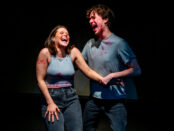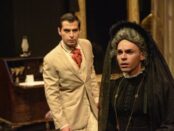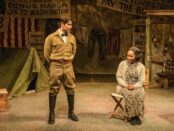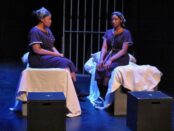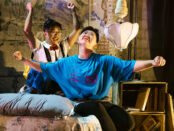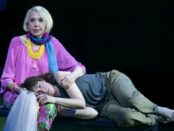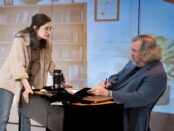The play is framed, movie style, by a trial of the leading character, so that the bulk of the play becomes a flashback to what led up to it. However, the show which is occasionally amusing is too dependent on name dropping and 1950’s references: "Leave It To Beaver," "Dragnet," Sputnik, Charles Atlas, Jack LaLanne, Flannery O’Connor, James Bond, Geritol, Jane Wyman, Henny Youngman, "Valley of the Dolls," Jack Kerouac, and quotes from "Damn Yankees," "South Pacific" and "A Star is Born." While the sound design by Morry Campbell is often witty with snatches of the themes from "Written the Wind," "A Summer Place," "West Side Story" and Alfred Hitchcock thrillers, much of the exaggeration is too farfetched without being remotely believable: Farley refers to his ex-wife Lena Horne and claims to have been brought up at The White House by President Calvin Coolidge and his wife.
[more]






